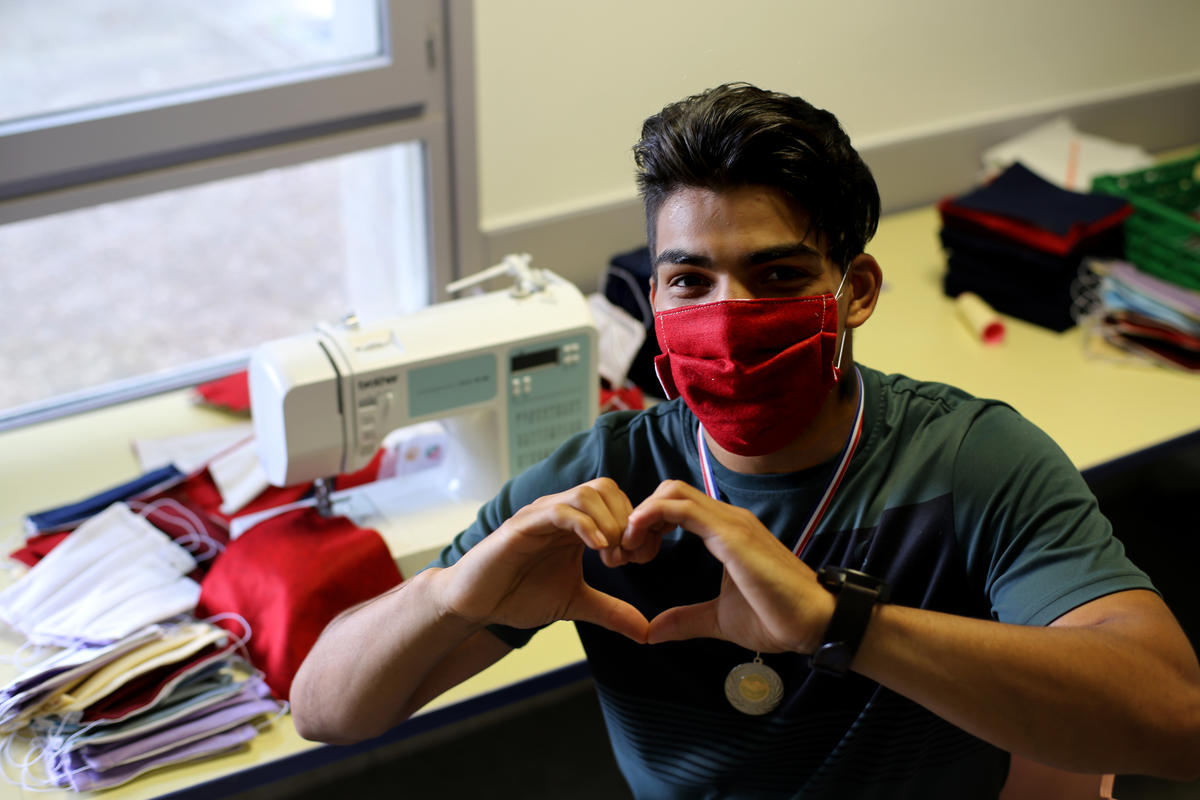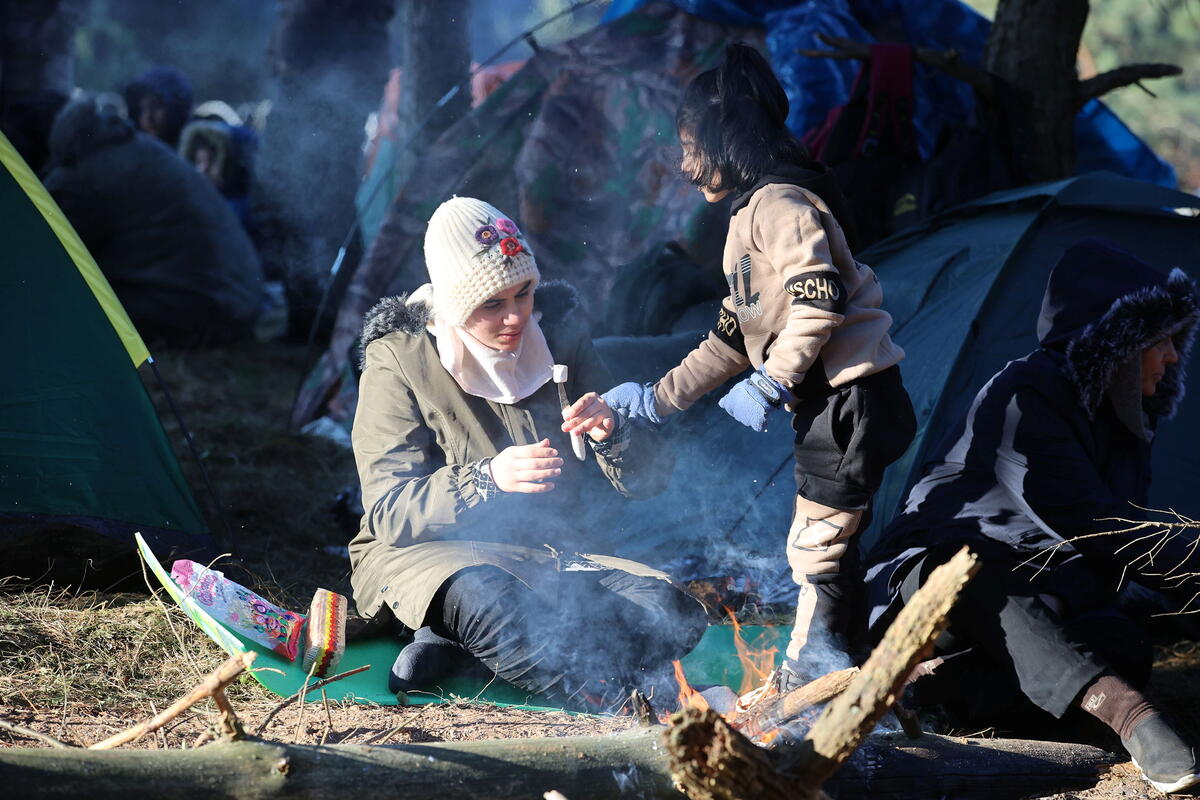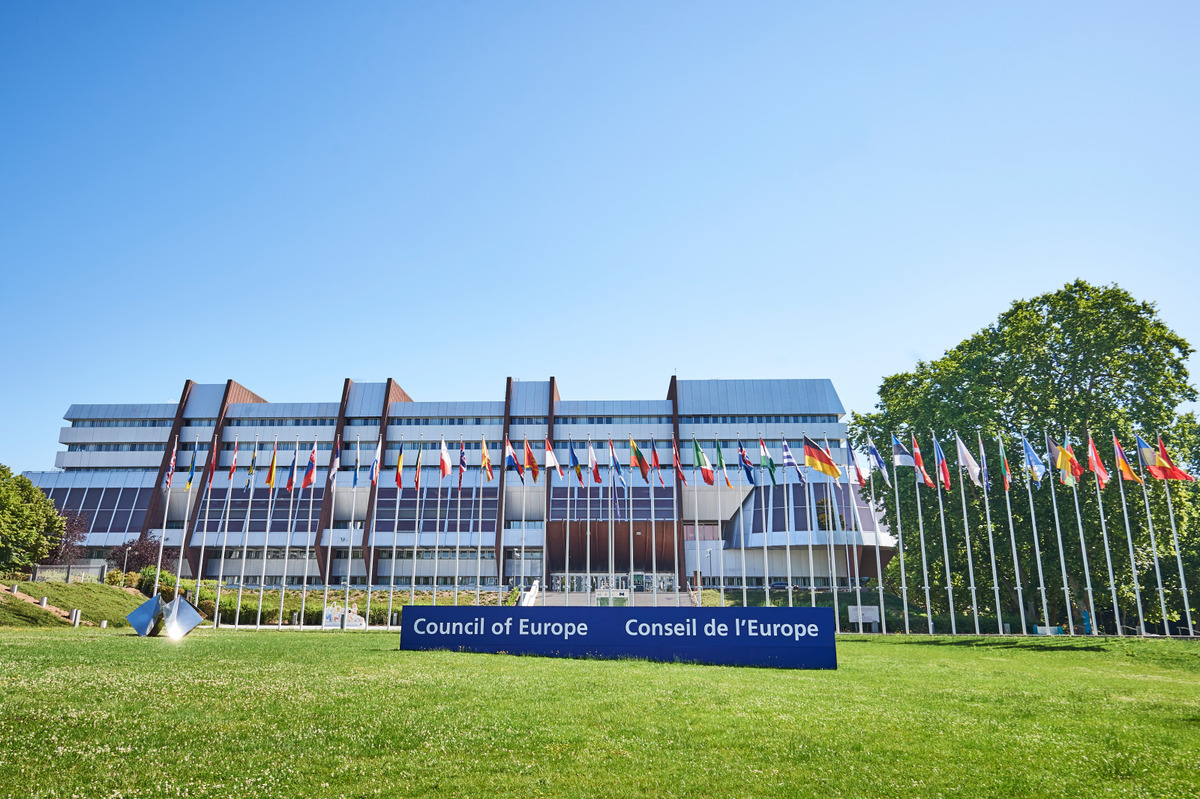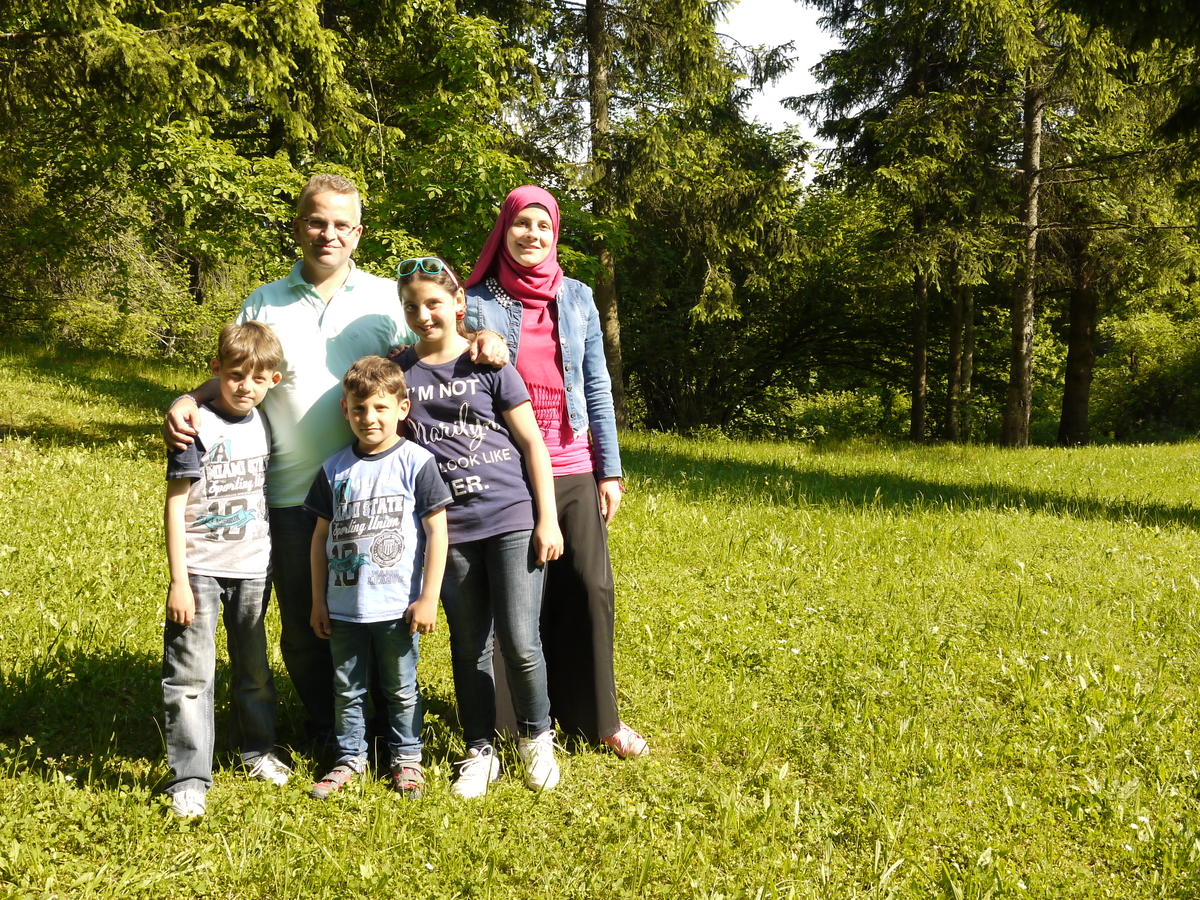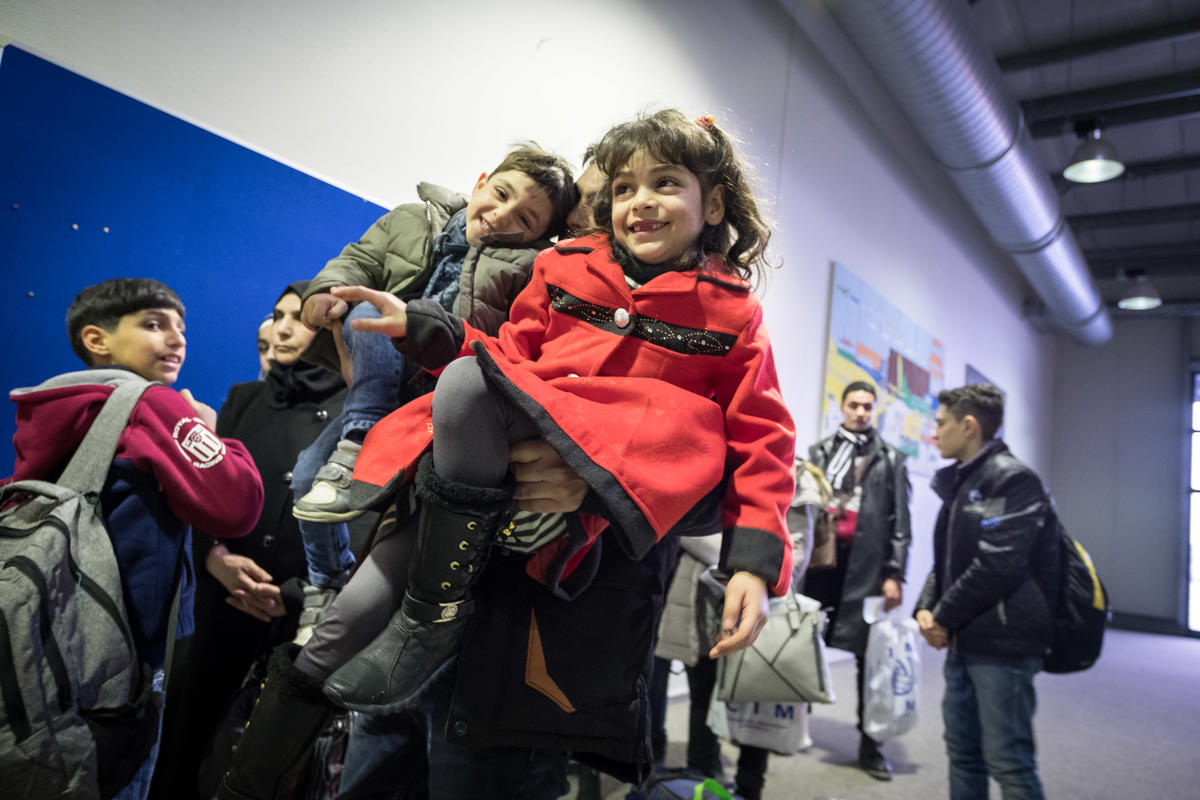Editorial Opinion: Time for action in Seville
Editorial Opinion: Time for action in Seville
By Ruud Lubbers, UN High Commissioner for Refugees
20 June 2002
GENEVA - Worried European Union leaders have every reason to place illegal immigration atop the agenda for this week's (21-22 June) EU Council summit in Seville, Spain.
Their inability to manage the complex mix of migrants and asylum-seekers converging on their borders is causing them major political headaches and making daily headlines across Europe. Voters are venting their frustration over what they perceive to be weak and ineffective government policies. They want action and governments appear to be listening.
Much of the focus so far has been on measures within Europe itself. While there is indeed a lot to be done here - including a long-overdue resolution of the Sangatte situation - Europe should also be looking beyond its own borders to the regions and countries of origin. That's where real solutions should begin.
It is irrational for governments to spend millions of euros on reinforcing borders, various deterrence measures, custody and detention centres and numerous other domestic approaches, without simultaneously investing in solutions at the source of the problem. It makes a lot more sense to help the displaced and the dispossessed at home, or as close to home as possible. Otherwise, desperate people will continue to take desperate measures to find help, including resorting to human smugglers.
A good example of this is Afghanistan, which last year accounted for the largest group of asylum applicants in Europe - some 51,100 people. Today, Afghans are going home so rapidly that the UN High Commissioner for Refugees has increased its projections for returns this year from 1.25 million to 2 million - most of them from Pakistan. Since March 1, UNHCR has helped 1 million Afghans go home, out of a total refugee population of more than 3.5 million.
What was once a road to refuge has fast become a road to return - and the effects are being felt all the way to Europe. In the first quarter of this year, Europe saw a 33 percent drop in the number of Afghan asylum-seekers. This clearly shows how addressing root causes can have an immediate and dramatic impact on distant asylum destinations.
Yet, UNHCR - the main agency for refugee repatriation and reintegration - is $86 million short of the $271 million it needs now to ensure that Afghans can go home and stay home. It has already made cuts in shelter packages for those who need to rebuild, and further reductions are looming. This work contributes to security and stability in Afghanistan. Without it, Afghans could take to the road yet again.
And it's not just in Afghanistan that we face such problems. In Africa and elsewhere, humanitarian agencies face chronic shortages that cause hardship for refugees and the poor nations that host them. More development aid is also needed in host countries to promote self-sufficiency among refugees, which will allow them to stay.
In addition to repatriation, there are other solutions available in regions of origin - either through integrating refugees in the country of first asylum or, if that is not possible, by resettling them to third countries. Both resettlement and integration enable refugees to become socially valuable and economically productive citizens. But both solutions also require international support. Without it, people will continue to move on their own.
And once they do move outside their region of origin - for whatever reason - what then? Many countries between Europe and the world's refugee hotspots have little or no capacity to handle asylum-seekers. That capacity has to be developed, something UNHCR has been doing over the past decade in Central Europe. It's working. Last year, 47,000 asylum applications were lodged in Central European states, compared to an average of just 4,000 annually in the early 1990s. We may already have helped diminish pressure on the European Union by about 10 percent.
Much needs to be done in the European Union itself, including development of common asylum and immigration policies. Many of those reaching Europe's borders are refugees in need of protection. But many more are not, travelling mainly for economic reasons. Strict and workable policies are needed to sort the migrants from the refugees.
One agreed measure is better policing of EU borders. This is fine, provided that refugees still have access to a just and fair asylum procedure. Highly trained border personnel will help ensure that no refugee is sent back to persecution, imprisonment, torture or death. UNHCR can help with that training.
But Europe also needs legal channels of entry, including refugee resettlement and immigration schemes. This means a managed system under a set of EU-wide immigration policies. With its ageing population, managed immigration is a logical way to help satisfy Europe's future labour needs. It will also combat smuggling and reduce the congestion and confusion that are now choking existing asylum channels.
Europe's complex collection of national asylum systems is badly in need of harmonization, a process agreed at the 1999 Tampere summit - but which is still a long way from reality. By reaching common reception standards, procedures and definitions, EU countries could remove many of the reasons people keep shifting from one member state to another in search of better treatment - so-called "asylum shopping."
Failing to address these issues leads to fractious situations like we see today in Sangatte, France, where hundreds of people wait daily for a chance to sneak into Britain via the Channel Tunnel. UNHCR is ready to lend its good offices to France and Britain to help them find a mutually acceptable solution. This could, for example, include support in determining who these people are and helping to find a "burden-sharing" formula for those found in need of protection. The others could be returned, and there UNHCR could also play a positive role.
European states also need to speed up their asylum systems and simplify appeals processes, while ensuring that the quality of the refugee determination procedure is fair but strict. This will make the integration of refugees a great deal easier, while non-refugees could be removed from the system more quickly.
Here, too, UNHCR can help. If the quality of the decision-making process remains high, governments should be able to deport failed asylum-seekers once their needs have been properly assessed. Indeed, the fundamental credibility of the asylum system depends on it. Let's hope that the leaders meeting in Seville this week can finally translate their words into action.



